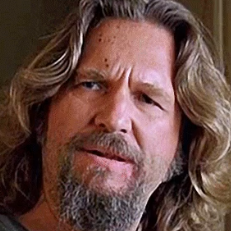I didn’t see much info about it prior to watching, went with some friends. A large part of the movie is about his possible communist affiliations, and his defaming. It wasn’t insanely anti-communist, but it definitely operated under the assumption communism equals bad. Anyone else have some thoughts on it?
I don’t think it operated under the assumption that communism is bad. You can’t have a movie about 19th century war/politics without there being politicians demonizing communism, and communists being ambiguous or completely scared at best of openly admitting their affiliations. It’s not realistic for a big Hollywood production to come right out with a big banner that says “CAPITALISM EVIL COMMUNISM GOOD” even if Nolan wanted to.
Tbh a lot of criticisms that I’ve seen online feel like those making them haven’t even seen the film. Or they really lack nuance, idk.
Others already mentioned most of the same thoughts I had (accurate for the time, Spanish Civil War) but it was annoying to see the “nuclear bombing of Japan saved lives” thing perpetuated. Not a word of the Soviet front in Manchuria. Was to be expected of a Hollywood movie, but still disappointing.
Silver lining was that the movie through Oppenheimer shows the realization of what absolute horrors the bombings were, and by extent the horror of nuclear war.
In my perspective, the movie didn’t perpetuate the “this is the lesser of two evils” line of thought at all. Yes, that was expressed but with all of the politicians in the room it would be unrealistic for their to be no dialogue of that sort at all. The tone of the scene, to me, felt like it was a poor excuse, and all the while Oppenheimer is convincing himself that that is the only option, like he leaves his guilt behind until after the damage had been done. I didn’t leave feeling like he was a hero, or feeling bad for him. It showed him living with the shitty choices that he made that’s what he deserved for not being true to his original convictions
It could have been way worse. Although it feels like their portrayal of Oppenheimer’s involvement with the Party consists of…well…coming to house parties, drinking wine, and hitting up women, while more serious stuff was purely mentioned indirectly through dialogue. I feel like they could have balanced more aspects of his life a bit by showing, not just telling (that he sent money to Spain, what he thinks about revolution), his affair with Communist ideas through discussions of theory or ongoing politics.
Overall, it was pretty surface level, but it did highlight how ridiculous the anti-Communist sentiment was at that time (albeit in a slightly weird way), without embracing that sentiment—while the Party was portrayed as seemingly useless (drinking, dining, having sex in a dimly lit bourgeoisie house), the accusations Oppenheimer received seem way more serious than his involvement. I’m sure the audience can feel the injustice and futility at the part where Oppenheimer and Co. tried to fight their way out after the Soviet espionage card was played by the stern men in suit.
Liberal/10, but I nevertheless enjoyed it. 3 hours went past quickly. I feel there was enough wiggle room to form your own opinions on the matter.
I think that it’s very likely that the other producers or whoever backed the film may have influenced just how prominent the pro communist message could be. Also, at the time you had to be pretty secretive about your affiliations so it felt like part of that was to add to how people might talk about it in potentially mixed company.




